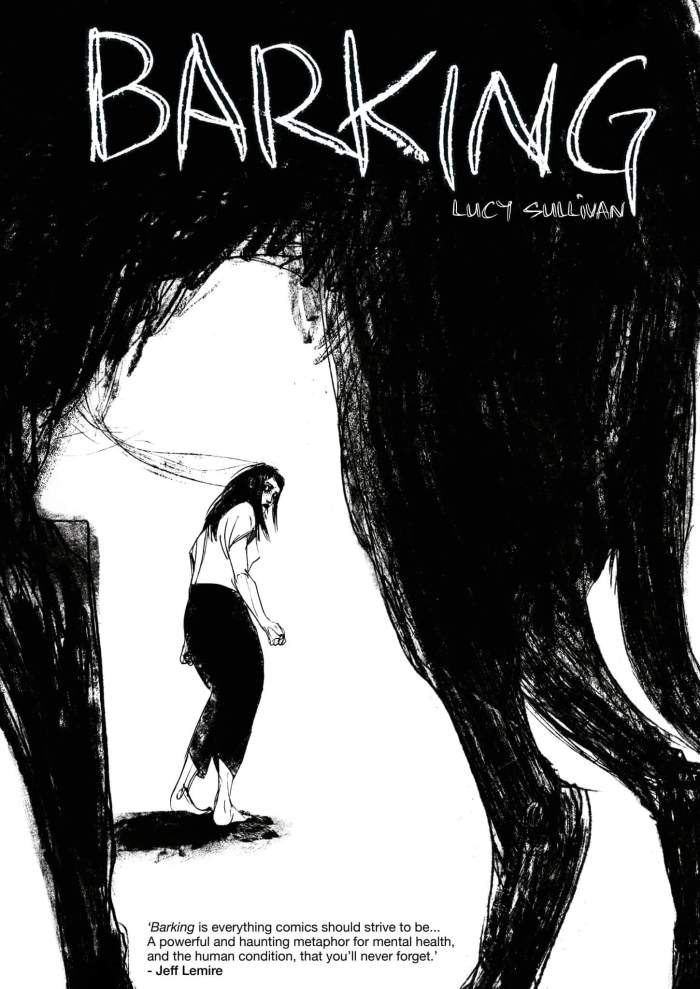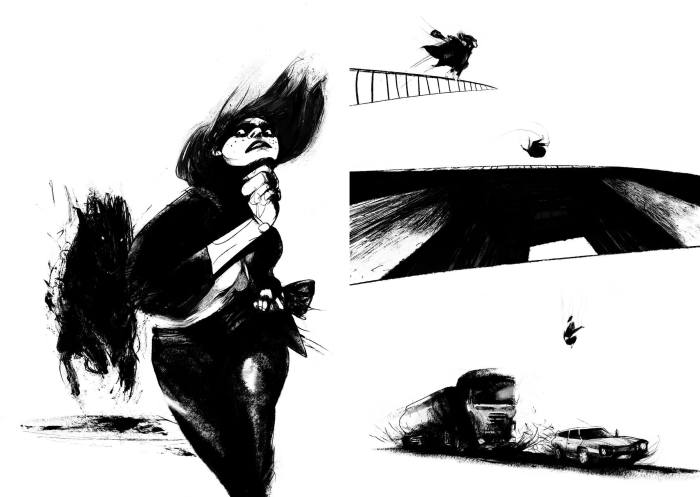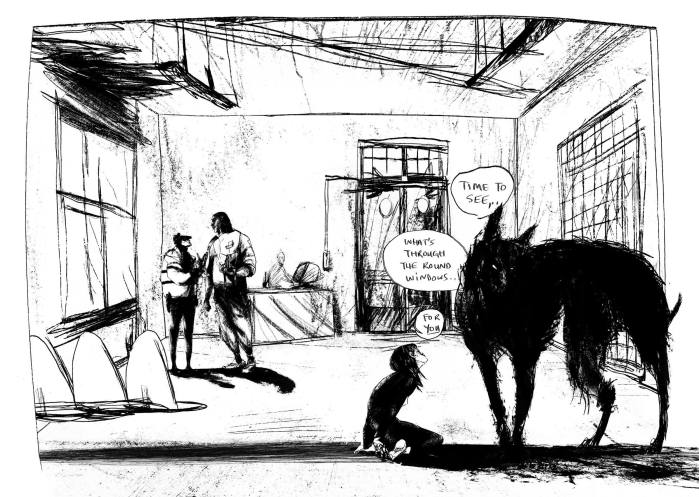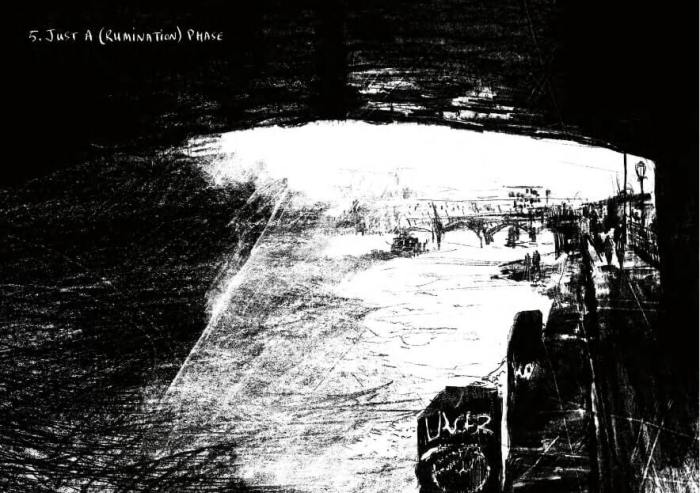
BARKING is a graphic novel by Lucy Sullivan, it’s her debut work and was published in April 2020.
It deals with themes of severe mental health issues, featuring striking artwork that leaves a lasting impression.
BARKING
As it says on the official website, this is:
“A tale of grief, madness and the ghosts that haunt us.”
With its stark imagery, relying on black and white, we were immediately reminded of Grief Is The Thing With Feathers (2015).
In that work, there’s a mysterious crow going about being an unusual presence. In BARKING, we have a black dog lurking in the murky depths of central character Alix Otto’s conscience.
Also, we have to nod to Slyvia Plath’s The Bell Jar (1963), which is another fine example of the descent into mental illness.
In BARKING, Otto is having a rather bad day.
It’s the one-year anniversary of her close friend’s death and, as an unfortunate marker of the occasion, she’s hounded by a dreaded beast.
As she’s unable to explain this situation properly to authorities, she’s sectioned and left to fester in very personal delusions.
Now, the fallout of this is set to Sullivan’s gothic and bleak visual style.
It’s not a joyful read, but it’s certainly impactful. A visually unnerving account of mental health developments and how they can drive a person into despair.
As with all the best graphic novels, and books in general, BARKING evokes a sense of atmosphere. In this case, grief and unease.
The dog, which resembles something of a ravenous wolf, embodies an eerie evil that shimmers and shuffles across the pages.
The way Otto views the world is also presented in a clever way, with the blacks, greys, and whites merging together to represent a hopeless environment.
Set amongst this imagery are indistinct architectural structures, as below. A bridge? Some water? Distant buildings?
The point being, we think, is that in reality it would be a beautiful scene. As it already is, in a kind of macabre way.
But what should be awash with colours and life represents the opposite—life in decline. Death closing in.
In a society with a lot of social stigma surrounding mental health, those unafflicted have a habit of wandering around dismissing the likes of depression as nonsense.
The ramifications of this are felt in BARKING, as Otto can’t get the help she needs. So, she’s cast to one side.
And the beast haunting her mind is left to roam free, with a pass to oppression due to an ill-equipped society.
That and, you know, it’s a candid account of what mental health issues are really like.
So, Sullivan’s work is more than welcome at this time. Artistically, it’s incredible. And as a genuine depiction of mental illness at its worst, it’s spot on.
And after a year of COVID-19 lockdowns and socioeconomic strife, it’s a reminder of what (hidden away) many people have to battle against.
Lucy Sullivan’s Afterword
Sullivan works as a freelancer and lives in London. BARKING is based on her mental health crisis from several years ago.
In her afterword, she’s critical of the current NHS system here in England. As in, the way it functions is far from ideal.
After 11 years of austerity and budget cuts, an already overstretched healthcare is under staggering strain due to coronavirus and the Tory government’s callous regime.
In other words, we, unfortunately, can’t expect any significant changes to the NHS any time soon.
However, Sullivan does have a suggestion for how to go about dealing with mental health issues. And it’s sound advice for all of us.
“Personally, despite a deep respect for the NHS and its staff, I disagree with a system that reduces the complexity of the mind, and the ways it can crack, to treatment under one umbrella approach. It’s a system that places people who are a danger to themselves and those who are a danger to others in one confined, stressful environment …
If you are fortunate enough to not have mental health problems then I hope this story will aid you in considering how you would cope if your world collapsed. If one in four people will suffer a mental health crisis in their lives, then it could be you, or someone you love. I hope if that does happen you are treared with the compassion and dignity we all deserve, Because there is no ‘crazy’. There are just different ways of seeing the world. Be kind to others and to yourself.”




Great review Mr W. Maybe I’ll read this timely book about the black dog.
LikeLiked by 1 person
I think you should go for it!
LikeLiked by 1 person
😊
LikeLiked by 1 person